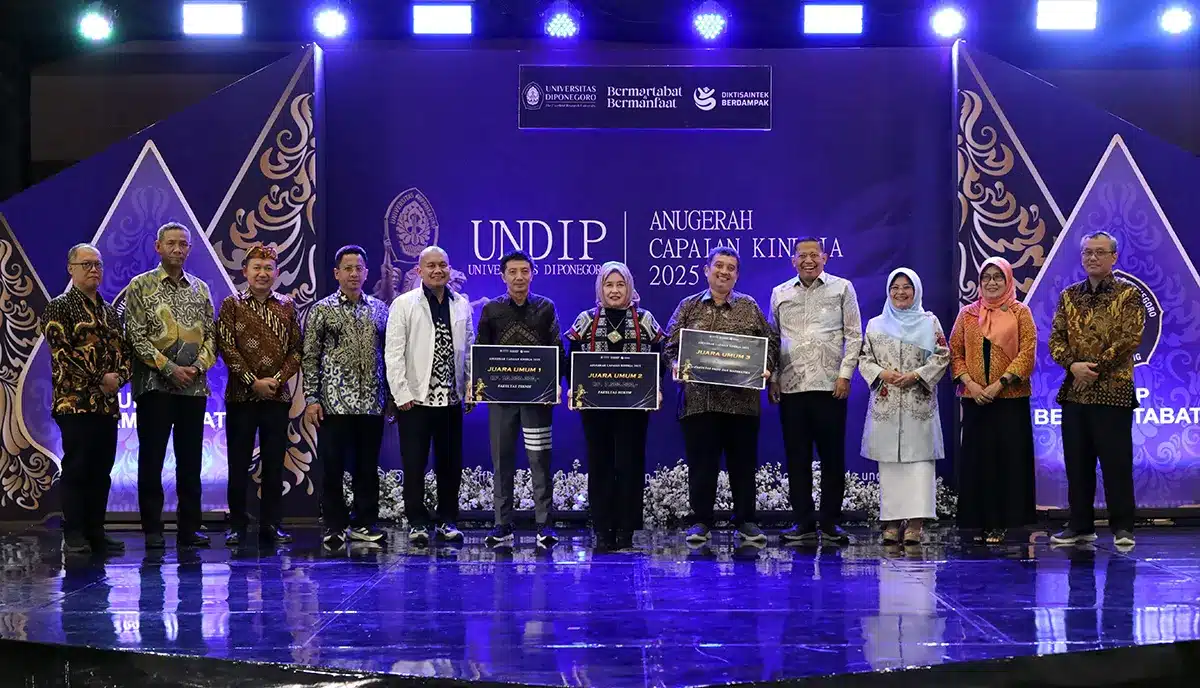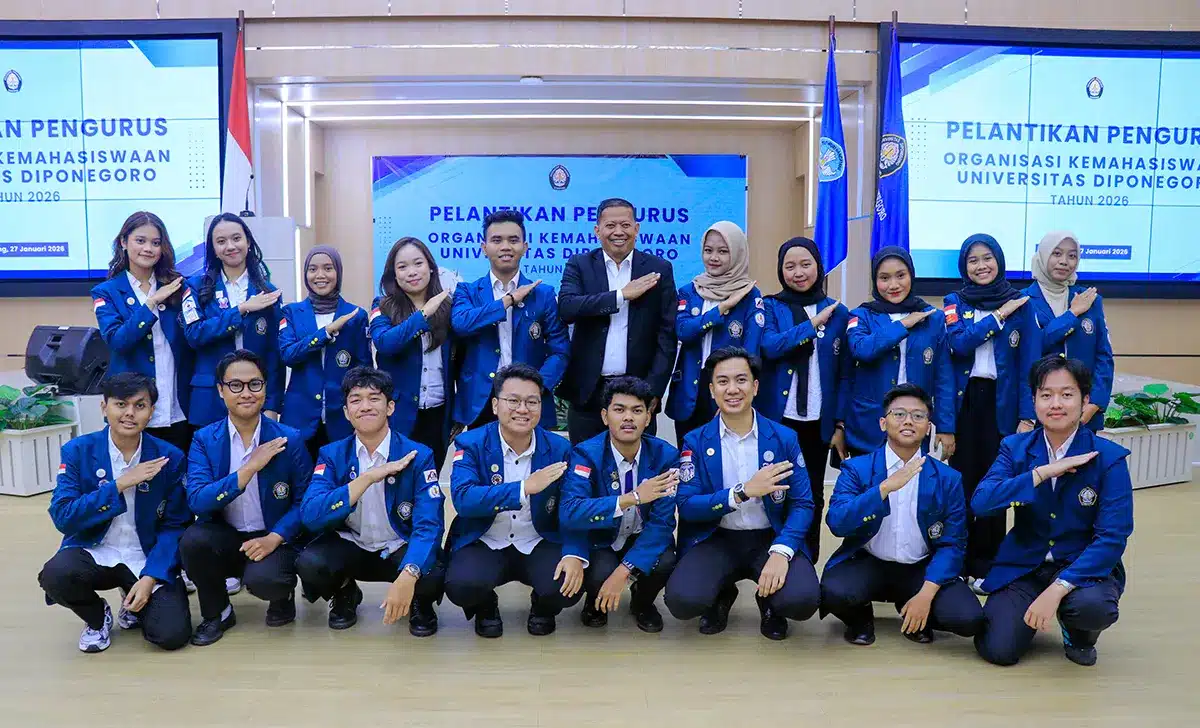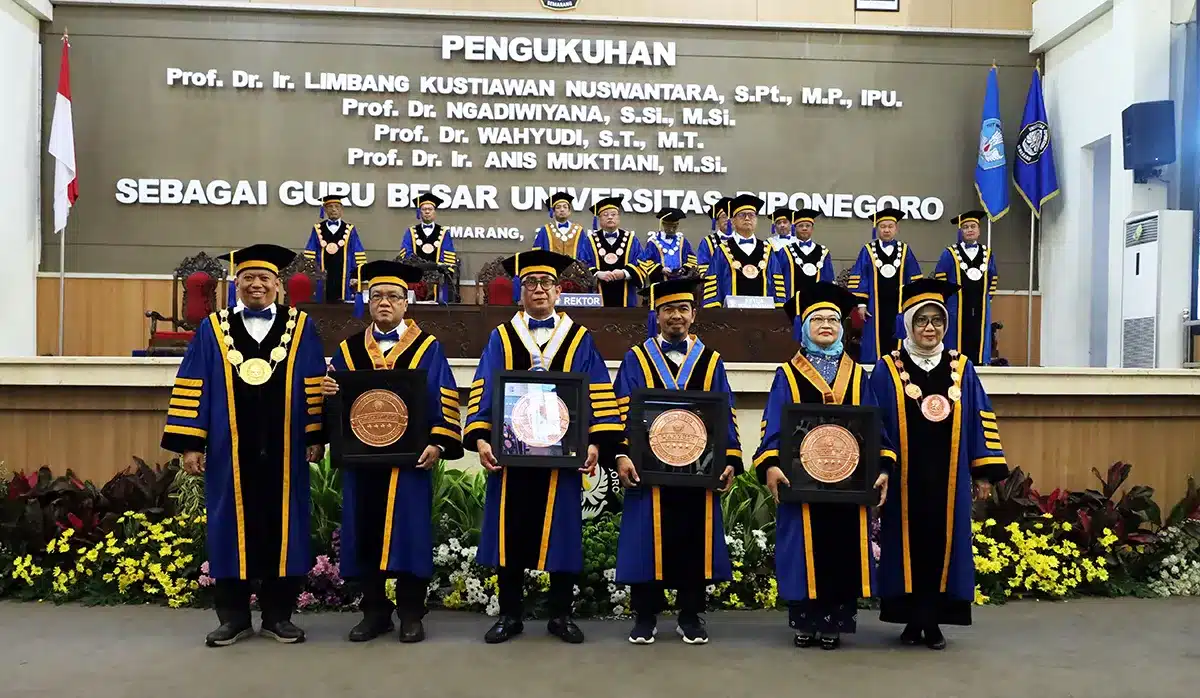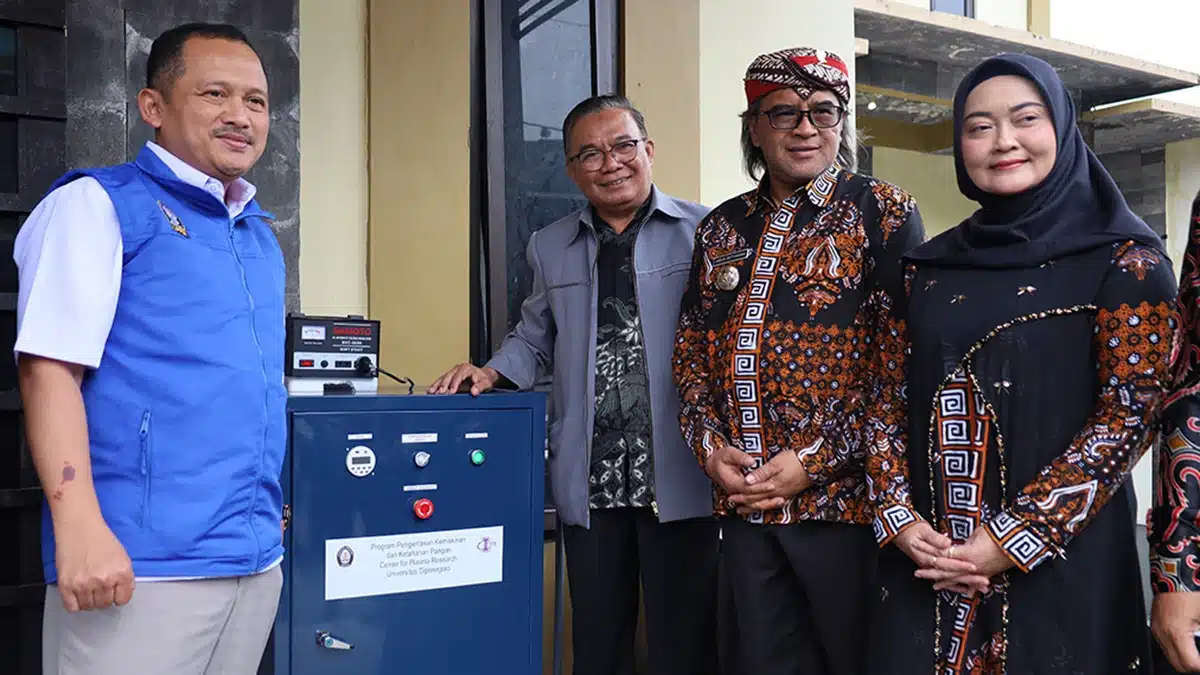SEMARANG – Faculty of Law Diponegoro University in collaboration with the Special Task Force for Upstream Oil and Gas Business Activities (Satuan Kerja Khusus Pelaksana Kegiatan Usaha Hulu Minyak dan Gas Bumi / SKK Migas) held a webinar with the theme of “Creditor Protection in Bankruptcy in the Upstream Oil and Gas Sectors”. Two speakers presented at the webinar are Advocate and Bankruptcy Curator, Sabar Maruli Simamora, S. h., M.H; and Advocate, Trustee, Administrator, Trainee, Legalized Auditor, Expert Witness, Joseph Krisna Wirayudha, S. h., M. h., CLA., CRM.
The Dean of Faculty of Law Undip represented by Deputy Dean I, Dr. Tri Laksmi Indraswari, S.H., M.H; in her speech said the theme in this discussion was very interesting. According to her, one of the challenges or problems in activities in the upstream oil and gas sectors is bankruptcy. The legal basis for bankruptcy is stated in Law Number 37 of 2004 concerning Bankruptcy and Suspension of Debt Payment Obligations.
“There are at least two important things regarding to bankruptcy decision, they are consequences and protection for the parties,” said Tri Laksmi in a webinar held on Friday (30/7/2021) which was broadcasted on Faculty of Law Undip Official YouTube Channel.
The existence of a bankruptcy decision, according to her, has consequences including on the debtor, the creditor, and the execution of the bankruptcy estate. Therefore, protection for the parties involved is a very important aspect and needs to be understood together.
Moreover, she said that natural resources of oil and gas are vital commodities and have important roles in maintaining national economy. “The upstream oil and gas industry itself is an industry which scope of activities is very broad include exploration, production, activities related to oil and gas field development, and so on.”
Meanwhile, the Head of Legal Division of Special Task Force for Upstream Oil and Gas Business Activities, Didik Sasono Setyadi, said that the activities of the upstream oil and gas sectors to this day have a very significant contribution to state revenues. “In addition, upstream oil and gas business activities are also an activity that has an extraordinary multiplier effect from economic growth in Indonesia,” he said.
Therefore, upstream oil and gas business activities need to get the attention of all parties. If there are irregularities in these activities, it could affect not only energy needs but also Indonesia’s economic activities.
“Especially in the middle of the current pandemic, if the upstream oil and gas activities experience obstacles, of course it will also cause problems for the state in order to manage finances. It would affect the efforts of maintaining national security,” he said.
Didik said that currently there are several challenges faced by upstream oil and gas business activities. Among them are the global challenges of promoting new and renewable energy; the management of oil and gas in Indonesia, which is currently mostly located in the western region; and the small domestic oil and gas reserves compared to other countries.
“However, with natural reserves that cannot be said to be in large amount, it is important to maintain the reserves owned by Indonesia considering the large population in this nation,” he explained.
Bankruptcy Advocate and Curator, Sabar Maruli Simamora, in his presentation explained the current development of bankruptcy cases in Indonesia where the economic situation is entering a critical era caused by the global situation of Covid-19 pandemic. From the data recorded in bankruptcy cases again shows an increase in the number of registrations in the Commercial Court.
From January 2019 to November 2019, the number of cases submitted to Suspension of Debt Payment Obligations (Penundaan Kewajiban Pembayaran Utang / PKPU) was 378 cases and 116 cases entered Bankruptcy Cases. Then from January 2020 to December 2020, a total of 637 Suspension of Debt Payment Obligations cases and 115 cases entered Bankruptcy Cases. “If you look at the data above, the number of incoming cases has almost doubled from the data for the previous period,” said Sabar.
The number of Bankruptcy and Suspension of Debt Payment Obligations cases in the period January 21 to June 2021 in five (5) Commercial Courts are: The Central Jakarta Commercial Court has a total of 280 Suspension of Debt Payment Obligations cases and 28 bankruptcy cases. Then, the Surabaya Commercial Court had 59 Suspension of Debt Payment Obligations cases, 20 cases entered bankruptcy cases. The Medan Commercial Court has 28 entry cases, 9 bankruptcy cases. The Semara Commercial Court has 23 Suspension of Debt Payment Obligations cases, 16 are bankrupt cases and the Makassar Commercial Court is 7 Suspension of Debt Payment Obligations cases and 0 bankruptcy cases.
“The assumption is that if we look at it and calculate it until the end of December, the number will continue to increase. This means that the number of incoming cases could be higher. So whether we like it or not, as said by Prof. Laksmi earlier, we have to follow the bankruptcy law, both in terms of law and in practice,” said Sabar.
The next speaker is Joseph Krisna Wirayudha who presented the material entitled “Settlement of Bad Bills”. Joseph Krisna revealed that one of the ways to save bad debts is to perform R3 (Rescheduling, Reconditioning and Restructuring).
Rescheduling is an effort to resolve non-performing loans (difficulty in paying loan principal and/or interest) which is carried out by extending the credit period or extending the grace period (a period of leniency for not paying the principal debt). Reconditioning is the rescue of non-performing financing by changing all or part of the agreement between the bank and the customer in the hope that the customer can pay off his obligations.
“Meanwhile, the restructuring of bills is to develop the debtor’s business so that they can fulfill their obligations. The taken steps are by reducing the interest rate on bills, entrepreneurs using billing interest, extending the billing period, adding billing facilities and changing billing terms,” he explained. (PR team)
Translated by: Titis – Public Relations










